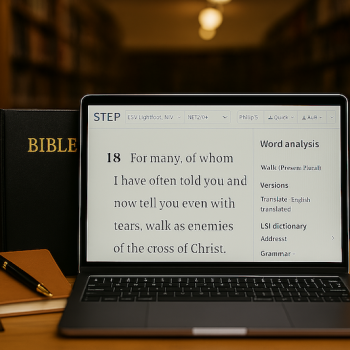Psalm 133:1-3 How to Live in Harmony
We just celebrated the 240th anniversary of the United States. It was a time of celebration of our unity as a nation. We are e pluburis unum (out of many one). We are a nation that celebrates our unity in diversity. Dr. Tony Evans expresses this unity in diversity in the following way:
THE AMERICAN EXPERIMENT
One of the great experiments when it comes to nationality is the American Experiment. The American Experiment is unique because of its intentionality to bring people from all walks of life, from every nation, under the banner of a single flag and to intentionally seek to bring across to these shores people from all kinds of other nations who would make up a union called the United States of America. This Experiment brought people together who would pledge allegiance to a single flag even though their backgrounds were different, unique, and dissimilar.
We acknowledge our differences by annotating our original heritages to our current nationality with terms like Irish American, Swedish American, Polish American, African American, or Hispanic American. The introductory phrase cites the uniqueness. The last word cites the unity. Whatever I am uniquely based on regarding culture, history, background, or previous location, I am that under the American Banner. There was in this Experiment an attempt to have a United States even though the people seeking to be unified were totally different. What the American Experiment represents from a cultural, historical, and geographical perspective to this nation, the church of Jesus Christ was meant to be for the King of Kings and Lord of Lords—people from different backgrounds, cultures, and perspectives, all pledging allegiance to the cross.1
One would think that we can celebrate this without any danger. However, as the recent shootings in Dallas prove, we still have a long way to go before we can ultimately live in harmony. How can one learn to live in harmony? Psalm 133 gives us three truths about how to live in harmony.
THREE TRUTHS ABOUT HARMONY
1. Harmony is Well-pleasing (Psalm 133:1)
“How good and pleasant it is when brothers live together in harmony!” (Psalm 133:1, HCSB)
Firstly, David affirms the beauty of unity. He declares it to be both good and pleasant. It is good in that it is pleasing to God, and it is pleasant in that it brings delight and happiness to those who experience it.2
By “brethren,” the psalmist referred to members of the covenant community. The harmonious togetherness of Israel, not that of a single family, was the thought.3
Many things are good, but not pleasant. Other things are pleasant, but not good. Here is something morally good and emotionally pleasant about getting along with others. Suppose two families invited you to supper on the same night. One was fighting among itself. The other was happy and loving, and mealtime there was a joy. Which invitation would you accept? Suppose you could attend one of two churches. The first was fragmented and the other was loving. Which would you attend? It is good and pleasant to dwell together in harmony.
2. Harmony is Sweet-Smelling (Psalm 133:2)
“It is like fine oil on the head, running down on the beard, running down Aaron’s beard onto his robes.” (Psalm 133:2, HCSB)
[USE OLIVE OIL TO DEMONSTRATE THE SWEET SMELL]
Secondly, David illustrates the beauty of unity by referring to the anointing of Aaron and the dew of Mount Hermon.4
It is like precious oil upon the head, running down on the beard of Aaron. In the Old Testament, God used the act of anointing with oil to signify the setting apart of certain people for divine service. The oil represented the Holy Spirit coming upon someone, sanctifying that person for holy use. God instructed Moses, for example, to appoint Aaron as High Priest, using oil.
“Then Moses took some of the anointing oil and some of the blood that was on the altar and sprinkled them on Aaron and his garments, as well as on his sons and their garments. In this way he consecrated Aaron and his garments, as well as his sons and their garments.” (Leviticus 8:30, HCSB)
This anointing is a picture of the anointing of the Holy Spirit. However, in our day we are baptized with the Holy Spirit, which puts us in the body of believers; and Christ is our Great High Priest. Since this is true, we should attempt to keep the unity the Holy Spirit made.5
RECIPE FOR ANOINTING OIL (Exodus 30:22-33)
Exodus 30 gives a unique recipe for this perfumed oil. It was made from four ingredients: olive oil, liquid myrrh, cinnamon, and cassia. It was a sweet-smelling perfume. As Aaron knelt before the Lord, Moses slowly poured this oil over his head. It ran down his beard, saturating his clothing, down to the fringes of his garments. It covered him with a unique, wonderful fragrance.
Why did David choose the anointing of Aaron to illustrate unity? Perhaps the reason is that Aaron’s high priestly work was a unifying factor for the nation. Once each year, he went into the Most Holy Place of the tabernacle with the blood of a sacrifice to offer an atonement for the sins of the people. Israel was not just a political entity. It was a spiritual entity in which the people were unified by a blood atonement.6
According to Psalm 133, that’s what the unity of the body of Christ is like. It’s something the Holy Spirit does as He is poured upon the church, saturating and drenching the people of God, making them one and bestowing on them a wonderful fragrance.7
“And don’t grieve God’s Holy Spirit. You were sealed by Him for the day of redemption. All bitterness, anger and wrath, shouting and slander must be removed from you, along with all malice. And be kind and compassionate to one another, forgiving one another, just as God also forgave you in Christ.” (Ephesians 4:30–32, HCSB)
We’re told not to grieve the Holy Spirit with whom we’ve been sealed (that is, anointed). We’re to get rid of bitterness, rage, and anger. We’re to be kind, forgiving each other. Many people feel they’ve been mistreated in some way, by parents, by a bully, by an employer. God gives us the Holy Spirit to enable us to trust Him with those people who are making us angry.
Unity among the people of God is always fragrant and makes them appealing to unbelievers. But the odor of disunity will drive them away!
3. Harmony is Life-Giving (Psalm 133:3)
“It is like the dew of Hermon falling on the mountains of Zion. For there the Lord has appointed the blessing— life forevermore.” (Psalm 133:3, HCSB)
Harmony is also like the dew of Hermon. This is the highest mountain in Israel. Its moisture runs into steams and rivulets that flow into the Jordan River, which runs north to south through Israel, irrigating and giving life to all the land. The ‘Songs of Ascents’ are songs of those preparing to worship.
HARMONY LIKE THE DEW OF MOUNT HERMON
David also illustrated unity by mentioning Mount Hermon. The highest mountain in Syria, it could be seen 120 miles away. It was also known for its moisture. For two-thirds of the year, it is covered with snow, and it receives sixty inches of precipitation annually. It is the main source of supply for the Jordan River.
Perhaps David could see this mountain as he wrote this psalm. He thought about how refreshing was its dew. Unity is also refreshing. Discord tires, but unity reinvigorates.
The moisture of Mount Hermon also ensured productivity. It flowed down to the plains to water the crops. And unity is productive in the church as well. A divided church is always a distracted church. The dissension becomes the focal point. But unity allows the church to focus on its high task and glorious privilege of preaching the gospel.8
The dew moistens the earth and supplies it with sap and freshness. David suggests, that the life of man would be sapless, unprofitable, and wretched, unless sustained by brotherly harmony9 The refreshing influence of the worshiping community on the nation was similar to the dew on vegetation. This was a fitting symbol of the Lord’s blessing on His people.10
David reflects here on how great it feels when people live together in harmony. It is a joy when people work and live together in harmony. David compares this harmony to the dew that flows down from the highest mountain to Jerusalem. He also compares it to the oil which flows from the anointing of the priest down his beard and onto his robe. The fragrance of both the dew and the oil smell wonderful. So David compares the pleasure of these flavors to the harmony between people.
However, living in harmony is difficult to achieve. The Bible teaches that we should strive for it.
“Let brotherly love continue.” (Hebrews 13:1, HCSB)
It is hard enough for people to live in unity, much less harmony. Having unity is like being on the same page of a song. Having harmony is like playing your part while you are on that same page. As a Christian, I am called to live in harmony with other Christians because the world will know us by our love for one another.11
“By this all people will know that you are My disciples, if you have love for one another.”” (John 13:35, HCSB)
Does someone here have a bitter, angry, critical spirit? You need the Holy Spirit’s help as you seek to trust God with whatever has caused this. The Holy Spirit is powerful enough to help you. I believe Jesus Christ is real enough to give you an overcoming attitude. Bring your frustrations to Him and trust Him to do what He alone can do. And may He heal our homes, restore our relationships, give us patience, and make us one.12
1 Tony Evans, Tony Evans’ Book of Illustrations: Stories, Quotes, and Anecdotes from More than 30 Years of Preaching and Public Speaking (Chicago, IL: Moody Publishers, 2009), 336–337.
2 Roger Ellsworth, Opening up Psalms, Opening Up Commentary (Leominster: Day One Publications, 2006), 55.
3 Russell H. Dilday Jr. and J. Hardee Kennedy, “Psalms,” in The Teacher’s Bible Commentary, ed. H. Franklin Paschall and Herschel H. Hobbs (Nashville: Broadman and Holman Publishers, 1972), 349.
4 Roger Ellsworth, Opening up Psalms, Opening Up Commentary (Leominster: Day One Publications, 2006), 55–56.
5 J. Vernon McGee, Thru the Bible Commentary: Poetry (Psalms 90-150), electronic ed., vol. 19 (Nashville: Thomas Nelson, 1991), 134–135.
6 Roger Ellsworth, Opening up Psalms, Opening Up Commentary (Leominster: Day One Publications, 2006), 56.
7 John Calvin and James Anderson, Commentary on the Book of Psalms, vol. 5 (Bellingham, WA: Logos Bible Software, 2010), 164.
8 Roger Ellsworth, Opening up Psalms, Opening Up Commentary (Leominster: Day One Publications, 2006), 56–57.
9 John Calvin and James Anderson, Commentary on the Book of Psalms, vol. 5 (Bellingham, WA: Logos Bible Software, 2010), 165–166.
10 Allen P. Ross, “Psalms,” in The Bible Knowledge Commentary: An Exposition of the Scriptures, ed. J. F. Walvoord and R. B. Zuck, vol. 1 (Wheaton, IL: Victor Books, 1985), 888.
11 Jim Erwin, “Living in Harmony,” Psalm 133:1-3, 9 April 2015 Year B, Lectionary Reflections Year B (2014-2015), Logos Bible Software Notes, http://www.patheos.com/blogs/jimerwin/2015/04/09/living-in-harmony/, accessed on 8 July 2016.
12 Robert J. Morgan, Nelson’s Annual Preacher’s Sourcebook, 2005 Edition. (Nashville, TN: Thomas Nelson Publishers, n.d.), 9.
















